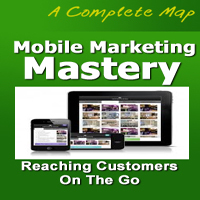


A Gateway To Earning And Collaboration

In today's digital landscape, affiliate opportunities have gained tremendous momentum as a versatile and rewarding way to earn income and collaborate with businesses. Whether you're a seasoned marketer or just stepping into the online realm, understanding the dynamics and benefits of affiliate opportunities can be a game-changer in your pursuit of financial success.
What Are Affiliate Opportunities?
Affiliate opportunities are essentially partnership arrangements between individuals or businesses (affiliates) and companies offering products or services. These agreements allow affiliates to promote the company's offerings and, in return, earn a commission for every sale or action generated through their marketing efforts.
The Appeal Of Affiliate Marketing
The allure of affiliate opportunities lies in their versatility and accessibility. Here are some key benefits:
Low Entry Barriers: Affiliate marketing doesn't require a significant upfront investment. Anyone with an online presence, from bloggers to social media influencers, can become an affiliate.
Flexibility: You have the flexibility to choose the products or services you want to promote. This enables you to align your affiliate efforts with your interests and target an audience that resonates with your niche.
Passive Income: Once your affiliate marketing system is set up and your campaigns are live, you can continue to earn commissions passively. This means you can generate income while you focus on other endeavors or even while you sleep.
No Inventory Or Customer Support: Unlike traditional businesses, affiliates don't need to worry about product inventory, shipping, or customer support. These aspects are handled by the company you're promoting, allowing you to focus on marketing and driving traffic.
Exploring Diverse Affiliate Opportunities
Affiliate opportunities are incredibly diverse, catering to various niches and interests. Some of the most common affiliate opportunities include:
Product Promotion: Affiliates can promote physical or digital products, from electronics and fashion to e-books and software.
Service Promotion: You can also choose to promote services, such as web hosting, digital marketing, or online courses.
Affiliate Networks: These are platforms that connect affiliates with companies offering affiliate programs. Popular examples include Amazon Associates, ShareASale, and ClickBank.
Earning Through Commissions: Affiliates earn commissions through different methods, such as pay-per-sale, pay-per-click, and pay-per-lead. Each program has its own commission structure.
Challenges And Considerations
While affiliate opportunities offer promising prospects, it's essential to be aware of potential challenges:
Competition: The affiliate marketing space can be highly competitive, with many affiliates vying for the same audience. It requires strategic planning and execution to stand out.
Building An Audience: To succeed as an affiliate, you need an engaged audience. Building and nurturing a following takes time and consistent effort.
Regulations: Staying compliant with advertising and affiliate marketing regulations is crucial, as non-compliance can lead to legal issues.
Affiliate opportunities provide a pathway to financial independence and collaboration with businesses. With low entry barriers, flexibility, and the potential for passive income, affiliate marketing is a compelling option for individuals seeking financial success. By exploring diverse affiliate programs, adapting to industry changes, and continuously building trust with your audience, you can tap into the vast world of affiliate opportunities and embark on a rewarding journey of affiliate marketing.






 Validate Your Idea: Test your business idea in the digital marketplace. Create a minimum viable product (MVP) to gauge interest and gather feedback from potential customers. This allows you to refine your concept before investing heavily.
Validate Your Idea: Test your business idea in the digital marketplace. Create a minimum viable product (MVP) to gauge interest and gather feedback from potential customers. This allows you to refine your concept before investing heavily.
Build A Strong Online Presence: Your digital identity is a cornerstone of your business. Invest in a professional website, robust social media profiles, and engaging content to showcase your expertise and build trust with your audience.
Leverage Technology: Embrace technology to streamline your business processes. Use tools and software for project management, customer relationship management (CRM), and analytics. Automation can save time and increase efficiency.






Strategies For Success
 2. Simplify The User Journey
2. Simplify The User Journey
Mobile users often have limited patience. Simplify the conversion process by minimizing the number of steps required for a user to take the desired action, whether it's making a purchase, signing up for a newsletter, or filling out a contact form. Reducing friction in the user journey increases the likelihood of conversion.
3. Clear And Compelling Calls To Action
Make sure your calls to action (CTAs) are clear, concise, and compelling. Use action-oriented language that guides users on what to do next. For example, use CTAs like "Buy Now," "Sign Up," or "Get Started" to prompt users to take action.
4. Optimize Load Times
Mobile users expect fast-loading pages. Slow-loading websites can deter potential customers. Optimize your website's load times by compressing images, minimizing code, and leveraging content delivery networks (CDNs) to ensure swift and efficient delivery of content to mobile devices.
5. Leverage Mobile-App Deep Linking
If your business has a mobile app, utilize deep linking. Deep links direct users to a specific page or section within your app, which can enhance the user experience and streamline the conversion process. This is especially effective for e-commerce apps and content-driven apps.
6. Implement Social Proof
Leverage social proof, such as customer reviews, ratings, and testimonials, to build trust and credibility with mobile users. Positive feedback and recommendations from others can reassure potential customers and increase their likelihood of converting.
Strategies For Success
 To stand out, you need to clearly define and communicate your unique value proposition (UVP). Your UVP is what makes your business different from the competition. It could be exceptional quality, unparalleled customer service, innovative products, or a combination of factors. Identifying and emphasizing your UVP is the first step to setting your brand apart.
To stand out, you need to clearly define and communicate your unique value proposition (UVP). Your UVP is what makes your business different from the competition. It could be exceptional quality, unparalleled customer service, innovative products, or a combination of factors. Identifying and emphasizing your UVP is the first step to setting your brand apart.
Leverage Effective Branding
Your brand identity plays a significant role in standing out. It's not just about a logo or a color scheme; it's about creating a consistent and memorable brand image. Invest in professional branding that reflects your core values and resonates with your target audience. A strong brand can help you cut through the noise and make a lasting impression.
Know Your Target Audience
Understanding your target audience is essential for standing out. Tailor your products, services, and marketing efforts to meet their specific needs and preferences. This personalized approach not only attracts customers but also fosters loyalty, as it shows that you genuinely care about their concerns and desires.
Embrace Innovation
Innovation is a powerful tool for differentiation. Whether it's developing groundbreaking products, using cutting-edge technology, or offering unique solutions, innovation can set you apart from competitors. Encourage a culture of creativity and continuous improvement within your organization to stay ahead.
Exceptional Customer Service
Outstanding customer service is a surefire way to stand out. Delight your customers by going above and beyond their expectations.
 Flexible Revenue Generation: For individuals seeking additional income during uncertain times, affiliate marketing offers a flexible and scalable solution. You can start small and gradually expand your affiliate marketing efforts as you become more proficient. This adaptability allows you to respond to changes in the economic landscape quickly.
Flexible Revenue Generation: For individuals seeking additional income during uncertain times, affiliate marketing offers a flexible and scalable solution. You can start small and gradually expand your affiliate marketing efforts as you become more proficient. This adaptability allows you to respond to changes in the economic landscape quickly.
Diversification Of Income Streams: Economic uncertainty often means that traditional income sources may become less stable. Affiliate marketing enables individuals to diversify their income streams by promoting products or services across various niches and industries. A diversified portfolio can provide a safety net during financially turbulent times.
Remote Work Opportunity: Affiliate marketing can be conducted from anywhere with an internet connection. This makes it an ideal option for those looking to work remotely or make ends meet while navigating economic challenges. You can operate as an affiliate marketer from the comfort of your home, a co-working space, or any location that suits you.
Performance-Based Compensation: Affiliate marketing operates on a performance-based model. Marketers are rewarded for their efforts, and businesses only pay when they see results. This aligns with the risk-averse approach that many adopt during economic uncertainty.
Targeted Marketing: Affiliate marketing allows businesses to target specific niches and audiences effectively. In times of economic instability, this precision can be particularly beneficial, as it ensures that marketing resources are invested where they are most likely to yield returns.
Data-Driven Optimization: Data and analytics are integral to affiliate marketing. Marketers can leverage data to analyze and optimize their strategies, making the most of every marketing dollar. This data-driven approach is especially valuable during uncertain economic times, where efficiency is paramount.
Consumer Trust And Credibility: Trust plays a pivotal role in affiliate marketing. Marketers often build relationships and credibility with their audience, which leads to higher conversion rates. In an uncertain economic climate, consumers are more likely to make purchases based on recommendations from trusted sources.
Finding Your Voice In The Digital World
 1. Discovering Your Unique Voice: Blogging is a canvas for your thoughts and emotions. It's a place where you can discover and refine your unique voice. Your blog reflects your personality, interests, and experiences. As you write and share, you gradually find your distinct style and perspective, making your content authentic and relatable to your readers.
1. Discovering Your Unique Voice: Blogging is a canvas for your thoughts and emotions. It's a place where you can discover and refine your unique voice. Your blog reflects your personality, interests, and experiences. As you write and share, you gradually find your distinct style and perspective, making your content authentic and relatable to your readers.
2. Storytelling As Connection: One of the most powerful aspects of blogging is storytelling. Through your blog, you have the ability to connect with your readers on a deep, emotional level. Your stories, whether personal anecdotes, life lessons, or accounts of challenges and triumphs, serve as bridges that unite you with your audience. As they read and resonate with your experiences, they may find solace, inspiration, or a sense of belonging.
3. Therapeutic Outlet: Blogging can also serve as a form of therapy. It provides a space to express your thoughts, emotions, and experiences. Writing about personal challenges, losses, or joys can be cathartic and help you process and make sense of your life. It can be a healing journey, both for you and your readers who may relate to your experiences.